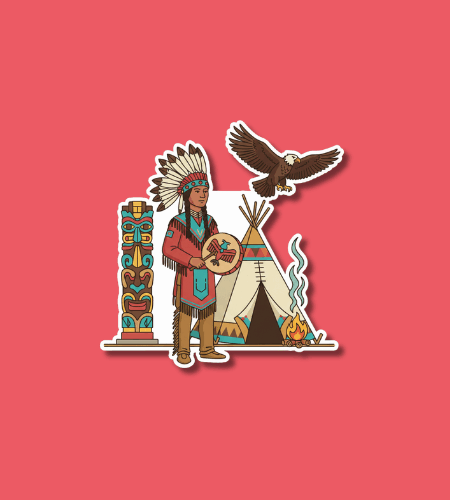Native American Heritage Day, observed on the Friday after Thanksgiving each year, is a day set aside in the United States to honor the cultures, traditions, histories and contributions of Native American and Alaska Native peoples.
Table of Contents
History of Native American Heritage Day
Legislation signed in 2008 designated the Friday after Thanksgiving as National Native American Heritage Day, recognizing the importance of honoring Indigenous peoples and their role in American history.
The day falls within Native American Heritage Month (November), which was first officially proclaimed in 1990 by Congress to provide a dedicated time to recognize Native peoples and their contributions.
Why is Native American Heritage Day important?
This observance is important because it helps raise awareness of the continual presence, resilience, and sovereignty of Indigenous peoples in the United States, not just their past, but their ongoing contributions to society, culture and government.
It also invites a more inclusive and truthful narrative about American history, one that honors the role of Native communities while fostering respect and understanding across cultures.
- It honors Indigenous cultures and traditions that pre-date the modern United States.
- It recognizes the ongoing contributions of Tribal Nations and Native communities today.
- It provides a moment to learn about Indigenous history and contemporary issues.
- It encourages reconciliation, recognition, and respect for Native sovereignty.
- It offers a chance to highlight Native voices in education, arts, and civic life.
How to Celebrate (or Observe) Native American Heritage Day
Observing this day can be meaningful by combining respectful recognition with actionable support. You might choose to attend a local Indigenous-led event, explore resources about Native history, or listen to voices from Native communities. Make space to learn, reflect and engage beyond the surface.
Practical ideas include reading works by Native authors, visiting museums or cultural sites, supporting Native-owned businesses, or simply pausing to reflect on what Indigenous heritage means in your region. Creating conversations about the day with family or community helps deepen the impact.
- Read a book, watch a film or listen to a podcast by a Native author or creator.
- Visit a local Indigenous cultural centre, museum or exhibition if possible.
- Support a Native-owned business or craftsperson.
- Encourage schools or community groups to include Indigenous perspectives and history.
- Take time for quiet reflection on the land, history, and ongoing presence of Native peoples.
Subscribe to our newsletter and never miss a holiday again!

